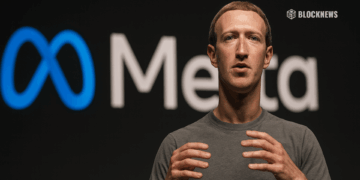- Beijing Municipality has announced an ambitious plan to train 10,000 engineering talent.
- This has been captured in a strategic plan which aims to capitalise on Web3 technology and trends.
- China has vast talents in crypto and Web3, the new frameworks will spur further adoption and development in digital technology.
The era of Web 3.0 is here! For Beijing Municipality, it is not just a cliche but an opportunity that must be grabbed, and not be let slip away. This is because a Government document filed by Beijing Municipal Human Resources and Social Security Bureau on July 7 has announced its ambitious initiative to train 10,000 engineering talent, who will specialize in rapidly growing technologies such as blockchain, artificial intelligence (AI), and big data. The bureau is an administrator of the development of the city’s workforce.
The document laid out a strategic plan to cultivate digital technology talents in Beijing as it bets on Web3; viewed as the next internet iteration powered by blockchain and metaverse technologies.
Beijing’s push into the era of Web 3.0 is not new in China, this is because of the recent establishment of the Beijing Metaverse Innovation Centre which was announced on July 6 at a web3 summit. This is a government-sponsored organization, designed to spur metaverse research, development and more adoption.
In addition, Beijing Municipal Human Resources and Social Security Bureau is overhauling its talent evaluation system. The new system will enable technical professionals to earn qualifications in new technologies including; blockchain, AI, virtual reality and cloud computing.
Under the title the “Beijing Digital Technology Skills Talent Training Implementation Plan,” the strategic plan is designed to develop digital technology leaders, talents and skilled workers. The trained personnel will be able to tackle complex issues, promoting the ongoing improvement of digital literacy and skills.
The strategic plan will also enhance the digital skills of industrial workers by revising the vocational skills training system so that they can produce a modern industrial workforce with digital skills. The plan proposes a series of digital technology skill competitions and innovation contests, with vocational skill level certificates awarded to eligible winners.
In addition, there will be a digital economy professional title evaluation major. An evaluation major will be able to conduct professional and technical level assessments based on national occupational standards. The successful candidates will receive a professional technical grade certificate of the national unified standard.
Tech Talents
Crypto is largely banned in China, however, the country has a large pool of tech-savvy who played a key role in the formative years of cryptocurrency. Some of the world’s most successful crypto exchanges including Binance, KuCoin, Crypto.com just to mention a few, started in the Greater China area.
Web 3.0 development in China traces some of its support to U.S. tech giants like Microsoft. According to protocol, “Through a decade of support, Microsoft was an instrumental force in helping China become the AI powerhouse it is today. Microsoft established its research lab in Beijing in 1998. Microsoft Research Asia has been a catalyst for a number of many Chinese AI companies and researchers, by 2018, Microsoft announced it had invested more than $1 billion in research and development over time as well as empowering students to get into the tech sector.














